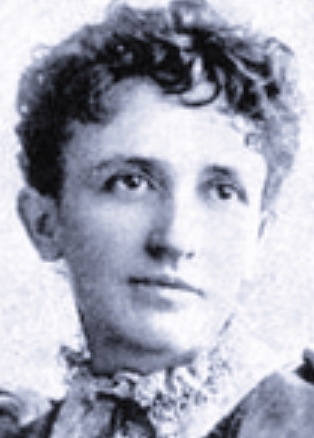January 21
Helen H. Gardener

On this date in 1853, freethinker and suffragist Helen H. Gardener, née Alice Chenoweth, was born in Virginia, the youngest daughter of a Protestant minister who had inherited slaves but freed them in 1853 despite existing legal obstacles. Changing her name in her 30s, she became a writer in New York City, studied biology at Columbia and met “the Great Agnostic” Robert Green Ingersoll, who encouraged her to undertake a lecture series. The lectures were published in 1885 in book form, Men, Women and Gods.
A friend of feminist Elizabeth Cady Stanton, Gardener was a member of Stanton’s Woman’s Bible Committee. Chosen by Stanton to deliver her memorial service, Gardener quipped that while most suffragists found the Woman’s Bible too radical, she found it not radical enough! She also used fiction to crusade for women’s rights, writing novels, for example, showing the harm of the scandalously low age of consent laws of her era.
In her 1885 book Men, Women, and Gods, she wrote: “I do know that women make shirts for seventy cents a dozen in this [world]. I do know that the needs of humanity and this world are infinite, unending, constant, and immediate. They will take all our time, our strength, our love, and our thoughts; and our work here will be only then begun.”
She became vice president of the National American Woman Suffrage Association in 1917, working as chief liaison with President Woodrow Wilson’s administration, and credited with being a “worker of miracles” by sister suffragists. At age 67 she became the first woman appointed to the U.S. Civil Service Commission, serving with distinction for five years.
She died at 72 of myocarditis. She had donated her brain for scientific study before her body was cremated and its ashes interred at Arlington National Cemetery beside the grave of her second husband. Her brain is housed as part of a collection at Cornell University. (D. 1925)
PHOTO: Gardener at age 41.
“I do not know of any divine commands. I do know of most important human ones. I do not know the needs of a god or of another world.”
— Gardener, "Men, Women, and Gods, and Other Lectures" (1885)
